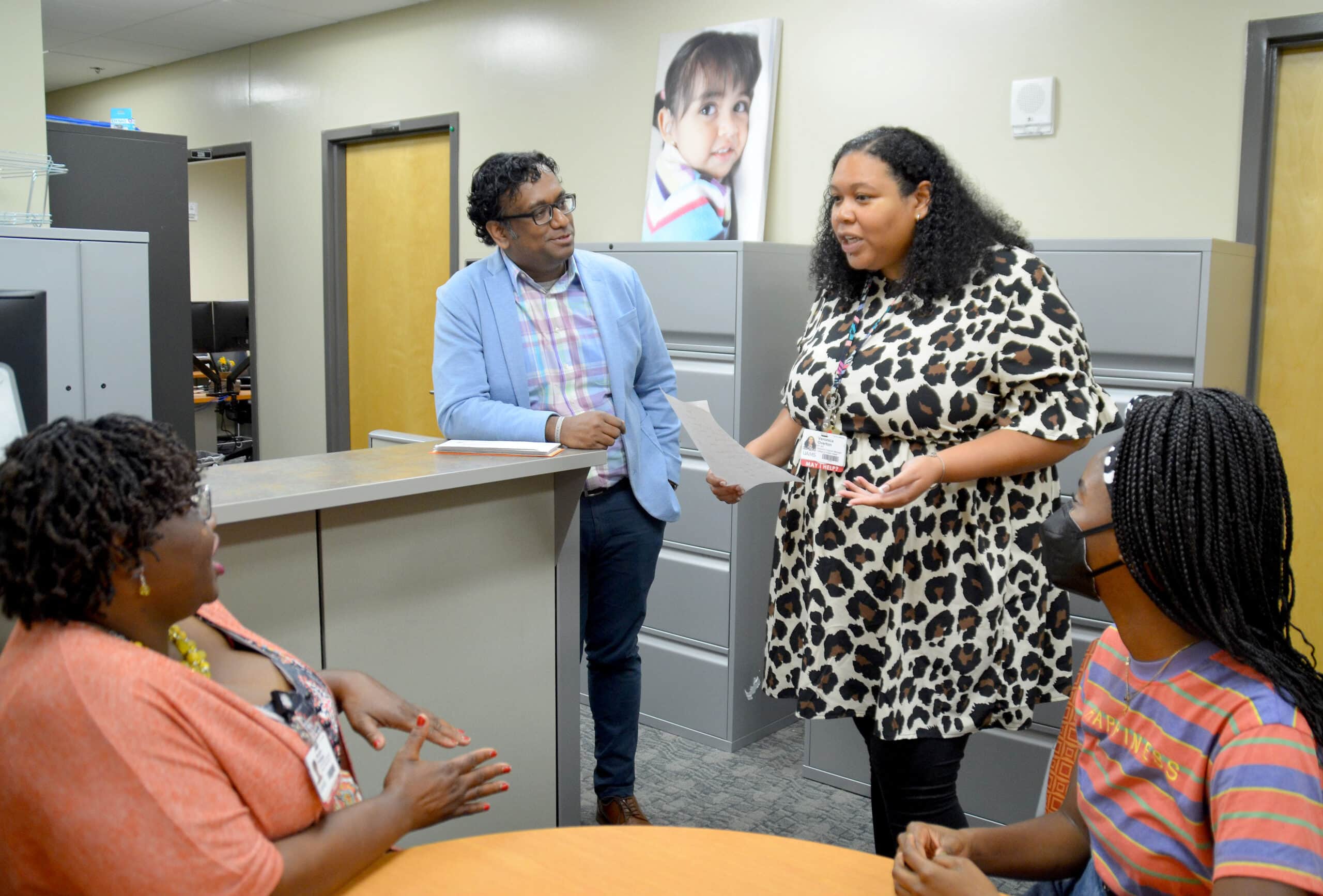DiscovAR Studies Differences in Immune System Response to COVID-19
| The University of Arkansas for Medical Sciences (UAMS) Fay W. Boozman College of Public Health’s Center for Birth Defects Research and Prevention is spearheading the DiscovAR project – which examines the differences in the immune response to COVID-19 infection related to race and ethnicity.
DiscovAR facilitators are currently aiming to increase the number of community volunteers to participate in the project.
“We’ve made a lot of progress with the study,” said Veronica Overton, research program manager for the center. “DiscovAR is a means to help the residents of Arkansas through the use of research and data analysis. We’re recruiting community members to volunteer for DiscovAR. We need community volunteers in order to reach our research goals.”
DiscvovAR organizers want to learn more about COVID-19, the symptoms people have, and how the virus undermines a person’s health, Overton said. Data from DiscovAR will help unlock several questions related to COVID-19 in Arkansas’ minority populations.
“This study has already provided profound insight about a number of things related to COVID-19,” Overton said. “We’re focused on comparing the data collected.”
DiscovAR launched in August 2021 and will continue to recruit volunteers until March 2023.
All volunteers must be at least 18 years old and have had a confirmed case of COVID-19 between August 2021 and March 2023. Volunteers must speak English or Spanish and be non-Hispanic Black, Hispanic or non-Hispanic white.
Participants will complete the activities for 48 months after they are enrolled. Volunteers will receive a $35 gift card after each study visit during the first year that they are in the program. Participants will get a $50 gift card after each study visit during years two through four that they’re in the program.
“While we do not think that being in this study will help the volunteers with their own health — it may help people who contract COVID-19 in the future,” Overton said. “Volunteers for the study can help us get closer to understanding how Black, white and Hispanic people respond to COVID-19 over time.”
When asked what’s the biggest hindrance to getting volunteers for DiscovAR, Overton mentioned an ongoing mistrust of the health community. However, she tells people that they have no reason to be leery of the DiscovAR study.
“We’re trained to ethically conduct our research,” she said. “We review consent forms with each participant and answer any questions they may have before enrolling a person into our study. We also make participants aware that the study is voluntary. In no way will it affect their medical treatment. They can depart the study at any time.”
To learn more about the DiscovAR project, visit publichealth.uams.edu/research/current-research-projects/discovar/.
